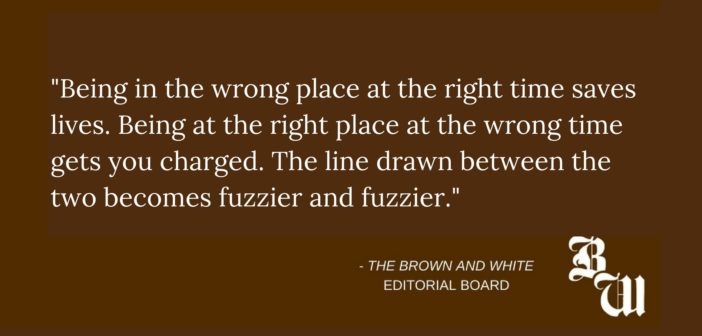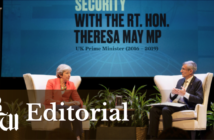The Brown and White Editorial Board sat down with associate data editor Peter Gormley, ‘18, former president of Kappa Sigma, to discuss his experience with medical amnesty.
—
No matter how many discussions we have about medical amnesty, we always leave confused.
Lehigh’s medical amnesty policy claims to give immunity to organizations calling about medical emergencies involving alcohol or drugs. Students hear about the policy since the start of their first year.
When they become more involved on campus, medical amnesty applies to their new clubs and organizations. Knowing their rights is the first step to being prepared to handle emergencies.Unfortunately, those rights aren’t always clear.
Let’s try a scenario.
Your team, Greek chapter or club is hosting a party off campus. A few hours in, you find someone slumped against the wall in the living room, unresponsive. You hear bells ringing in your head. You call for help immediately.
Later, while talking to authorities, you know you did the right thing. Their tone of voice indicates they agree with you.
Medical amnesty, clause D.
“Student organizations must seek immediate medical assistance for members or guests when a potential health risk is observed. Any student organization that seeks immediate assistance will not be charged with violations of Lehigh’s Social Policy or Code of Conduct.”
Still, you’re later told that your organization is being dissolved.
Medical amnesty, clause F.
“The Medical Amnesty Policy is not intended to shield or protect those students or organizations that repeatedly violate the Code of Conduct. The university reserves the right to take judicial action on a case-by-case basis regardless of the manner in which the incident was reported.”
When it comes down to it, there’s only one moral choice. Call for help. No one should be protecting those who abuse medical amnesty. But the contradiction between these clauses is worrying. It’s unclear. And it might discourage people from getting help at all.
The reality is students’ perceptions of medical amnesty are based on the most prolific, and unfortunate, examples, regardless of how many students call and are granted immunity under the university.
Take Kappa Sigma. Rumors spread that they held a party, called the police when someone was in trouble and were kicked off the Hill for trying to help. Any clauses in the medical amnesty policy involving legal consequences outside medical amnesty were left out of the public discussion.
As a result, negative reactions to medical amnesty formed and rippled across the campus, trickling down through large organizations and small friend groups alike.
Organizations naturally have more to lose in such scenarios. All groups on campus, not just Greek organizations, have members responsible for retaining a good public image. Situations invoking medical amnesty place the trust of dozens of others in a single individual’s hands.
Kappa Sigma should be treated as an anomaly: we can’t assume everyone will be inclined to help in the moment.
Being in the wrong place at the right time saves lives. Being at the right place at the wrong time gets you charged. The line drawn between the two becomes fuzzier and fuzzier. On the state level, there seems to be another contradiction.
Pennsylvania’s medical amnesty law grants underage students immunity under three conditions: underage individuals must reasonably believe they’re the first to call for assistance, they must give their real name to authorities and they must stay with the person needing medical assistance until help arrives.
Lehigh’s medical amnesty policy fails to mention any of Pennsylvania’s stipulations.
Bethlehem has no such policy, making it unclear where our private university stands in public legislature.
In the “case-by-case basis” language in Clause F, power to decide is put into law enforcement’s hands, after the fact, if students thought they were the first ones to call for help.
Kappa Sigma believed they were the only ones to call. But police said they had already heard from neighbors about an unrelated noise complaint. Our policy claims it does not protect us from state laws, but our state laws claim that we’re protected under the given circumstances.
The line becomes perfectly gray.
The ambiguity of potential consequences could be grave, even fatal. Each well-intentioned call raises the risk of a student staying silent in the future. Our medical amnesty policy claims “to remove barriers that prevent students from seeking the medical attention they need.”
Proving that to be true requires consistent measures as a foundation to every individual case.
A lack of consistency reduces conversations. That’s upsetting.
A lack of conversation reduces calls. That’s inexcusable.






Comment policy
Comments posted to The Brown and White website are reviewed by a moderator before being approved. Incendiary speech or harassing language, including comments targeted at individuals, may be deemed unacceptable and not published. Spam and other soliciting will also be declined.
The Brown and White also reserves the right to not publish entirely anonymous comments.